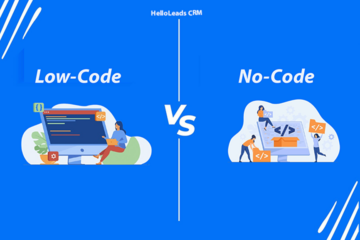
In today’s competitive business environment, cultivating customer relationships is fundamental to success. Building strong bonds with customers not only drives sales but also fosters loyalty and advocacy. This is where Customer Relationship Management (CRM) become invaluable. CRM tools empower businesses to nurture and reinforce their customer relationships, fostering trust, loyalty, and overall satisfaction.
In this blog, we’ll delve into the world of CRM and uncover how it can transform your customer interactions.
Understanding CRM
CRM provides a unified platform for cultivating and enhancing relationships with your customers. By organizing customer data into a centralized database, CRM systems provide a comprehensive view of each customer’s journey, preferences, and purchase history. This data-driven approach empowers businesses to deliver personalized experiences that resonate with their customers.
Key Ways CRM Strengthens Customer Relationships
1.Personalized Experiences:
- Tailored Communication: CRM allows businesses to segment customers based on demographics, preferences, and purchase behavior. This facilitates targeted marketing campaigns and personalized communications that align with individual needs
- Product Recommendations: By analysing customer data, businesses can offer relevant products or services recommendations, enhancing the customer experience and increasing upselling opportunities.
2.Improved Customer Service:

- Quick Response Times: CRM systems enhance customer support by streamlining processes, allowing agents to access customer information and history swiftly. This leads to faster response times and improved customer satisfaction.
- Proactive Support: By analyzing patterns in customer inquiries, businesses can address potential issues proactively before they escalate, preventing customer frustration and building trust.
3.Enhanced Customer Loyalty:
- Loyalty Programs: CRM systems support the development of effective loyalty programs, rewarding customers for their continued business and encouraging repeat purchases.
- Personalized Recognition: By monitoring customer preferences and key milestones, businesses can provide personalized recognition and appreciation, fostering a sense of loyalty and belonging.
4.Data-Driven Insights:
- Customer Behavior Analysis: CRM provides valuable insights into customer behavior, preferences, and trends. This data can be leveraged to optimize marketing strategies, enhance product offerings, and uncover new opportunities for growth.
- Predictive Analytics: By analyzing historical data, CRM systems can forecast future customer behavior, empowering businesses to anticipate needs and proactively address potential issues.
5.Streamlined Sales Processes:

- Lead Management: CRM helps sales teams effectively manage leads, monitor their progress through the sales pipeline, and prioritize opportunities based on potential value.
- Sales Forecasting: By analyzing sales data, businesses can project future sales trends, pinpoint areas for improvement, and make informed decisions regarding resource allocation.
Conclusion
In today’s customer-centric world, building strong relationships is paramount for business success. CRM systems provide the tools and insights needed to foster meaningful connections with customers, drive loyalty, and achieve long-term growth. By leveraging the power of CRM, businesses can create personalized experiences, improve customer service, and ultimately build bridges that strengthen their relationships with customers for years to come.
Share this blog :










